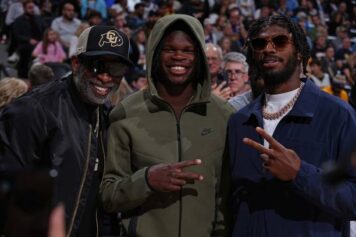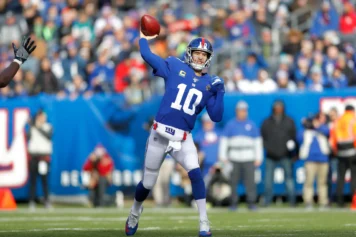Calling Yance Ford’s documentary “Strong Island” deeply intimate and the gut-wrenching portrait of a family would be something of a misnomer. It is that, and more.
The film was ten years in the making and documents the investigation undertaken by Ford into the shooting death of his brother William Jr. in Suffolk County, Long Island in 1992.
The story was immediately familiar to me as I was a senior in high school at the time, and it had only been three years prior that 16-year-old Yusef Hawkins was shot and killed in Bensonhurst, Brooklyn.
In my own town of Trenton, New Jersey, black kids were taught very early on to stay out of Chambersburg, then an Italian enclave, and Villa Park, an Irish part of town, or face the violent retribution of its inhabitants. Back then, I had no idea how common this was in the north.
Though I cannot relate to the amount of pain suffered by the Ford family, their story is all too familiar for black northerners. Just a few short generations after leaving the segregated south, too many came to realize that American racism has no borders.
undefined
undefined
Recently, The Shadow League was in attendance at a screening of “Strong Island”, followed by a Q&A featuring Ford, producer Joselyn Barnes, Attorney Landon D. Reid, and moderated by director June Cross.
In 1992, Yance’s brother William went to the Super Stang auto body shop in Central Islip to pick up his sister’s car and had some words for a young white man who, he told a friend, had disrespected his mother over the phone. William didn’t survive that night, killed by a single shot from a .22 caliber rifle.
Over the course of the film, Yance’s investigation includes inquiries to the Suffolk County Police Department and the Suffolk County DA, as well as intimate looks into the life of the Ford family prior to the death of her brother, and afterwards.
“There has been a resounding silence from the criminal justice apparatus (regarding this film),” Yance told the audience. “The Suffolk County district attorney is currently under investigation for corruption, the Suffolk County Police Department is under scrutiny from the department of justice. They have their hands full. The current DA is not running for re-election because he is under investigation for the type of corruption that was alluded to in Strong Island. Suffolk County is probably one of the most corrupt jurisdictions in the country.”
undefined
undefined
Producer Joselyn Barnes recalled a detail that stuck with her and, to me, appears right out of the playbook of anyone looking demonize dead black people. It’s simple, just say you’re scared and every black man is a potential threat/target.
“One of the things that struck me was the autopsy report,” said Barnes. “There were so many descriptions that described William as menacing and scary, (but) the autopsy report was very clear that he was only 5-foot-8”.
Indeed, this is not a film for those who are comfortable being moved by cinematic works. You can’t help but feel something when watching it. However, Ford told audience members that this is entirely different from the one she originally conceived.
“I think the one thing I was really clear about was the aesthetic signature of the film,” said Ford. “I knew it needed to be a formal film otherwise the intense emotion and the devastation of my family would be an un-tellable story without the frame around it. Because the film had been shot the way it had from the beginning, we were able to actually construct that kind of film. The center framing of each character is something because, I’ve seen thousands of documentary films over my career and I know that black characters rarely ever occupy such a frame without someone else in the frame to either authenticate their story without this sort of floating heads, streaked with tears and otherwise unintelligible.”
Strong Island | Official Trailer [HD] | Netflix
“The police had turned my brother into the prime suspect in his own murder.” Filmmaker Yance Ford takes an emotional and unflinching look at his family’s devastation and lingering pain after the murder of their son and brother, William Ford.
“They’re aware of the injustices that they survived and are quite capable of articulating their experience,” she continued. “So, all of that was already in place. When I realized this wasn’t the film I wanted to make it was terrifying because this isn’t the type of film you get to make twice. I couldn’t live with a film that basically would have broken the spine of my mother’s grief. It was an incredibly compelling film, but it was an incomplete story. There was rage but there was also a lot of other analysis and questioning in the film. Thank goodness we had shot it in a way I knew we wanted it to be. We had the tools, we just needed to reconstruct it.”
“When I first started it I wanted to know what happened,” she continued. “Fortunately, the answer to that was very quickly arrived at. A white guy shot a black guy because he was scared, and that black guy happened to be my brother and Mark Riley was that white guy. There’s nothing unique about that story. So, when I realized that there was actually a historic “what”, and that the “reason” was actually a historic reason, I realized that they didn’t want to know anything about my brother and that they needed to know what we (family) had to say. [Mark Riley’s] version of the events is the historic version of events. He has his say, and he has his way in the prosecution, or lack thereof, of his crime, and the portrayal of my brother throughout the sequence of events.”
The lie that speaks of the out of control, violent and monstrous black male may even predate America itself. Attorney Landon D. Reid reminded us of the insane twists of logic needed to remove the humanity from a human being.
“We know that dehumanization is associated with not assigning secondary emotions to people,” said Reid. “Some emotions are primary, some emotions are secondary. Secondary emotions are the complicated ones, like regret, jealousy. Primary emotions are things like rage. We share primary emotions with animals. So, literally, if you look like me, you are in very short order not human. And if you’re not human then it doesn’t matter what happens to you. If you are an animal then you are, by nature, a threat.”
“Strong Island” is currently available on Netflix and has garnered a 100 percent rating from Rotten Tomatoes.



